Detecting Misinformation Improves Memory Recall and Life

Misinformation (falsity) about an event that is accepted as truth makes it more difficult to recall the original details of the event as they actually happened. The falsity is the accepted visible reality, while the underlying details are covered over.
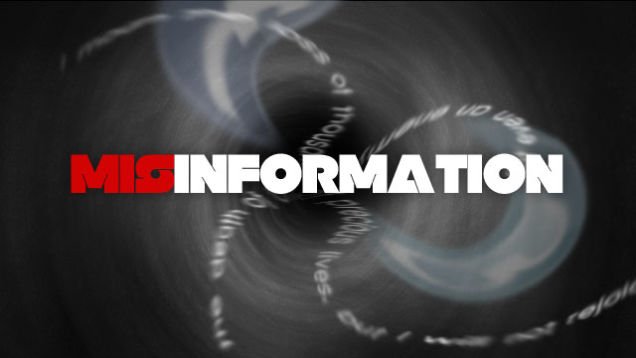
source
New research published in Psychological Science shows that an event is remembered more (in better detail) when misinformation about it is corrected, compared to never having had false information in the first place.
“Misinformation led to improved recognition of the original event when subjects detected and remembered a change between the original event and the postevent information.”
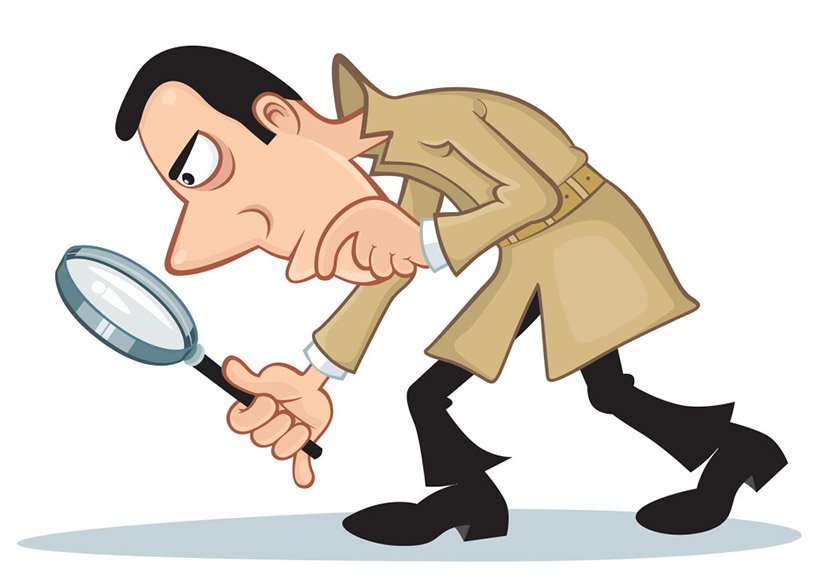
source
Recognizing falsity, disinformation or misinformation as being inconsistent, disharmonious, disunited and misaligned with reality, is done through comparison and contrast between the accepted falsity and the truth that challenges it. Remembering this change enhances retention of that information we once didn’t regard correctly or pay much attention to at all.
If we notice misinformation as not being accurate, we wont form a false memory.
Adam Putnam of Carleton College, and his colleagues, had 72 undergraduate participants watch six slideshows with 50 pictures, each of a particular event. Participants then took part in a five minute distraction task followed by a reading of the descriptions of the previous slides.
The descriptions were divided into three categories: 1) a specifically accurate description , 2) a generally accurate description, 3) a false description.
Ex:
A slide of a thief holding a $1 bill in a car, with varying descriptions such as:
- “He examined the bills, and saw they were all $1 bills” (consistent)
- “He examined the bills and saw they were all US currency” (neutral)
- “He examined the bills and saw that they were all $20 bills” (inconsistent)
After the distraction task, multiple choice questions were given , asking about the original slideshow.
- What kind of bills were in the car?
Followed by the 3 choices based on the previous descriptions:
- $1 bills, correct option
- $20 bills, incorrect option with misinformation
- $5 bills, different incorrect option
If participants found no contradiction or inconsistency with the original, then they usually fell into the misinformation effect and picked the wrong option. But if they noticed a change in the questions, the misinformation deficit disappears.
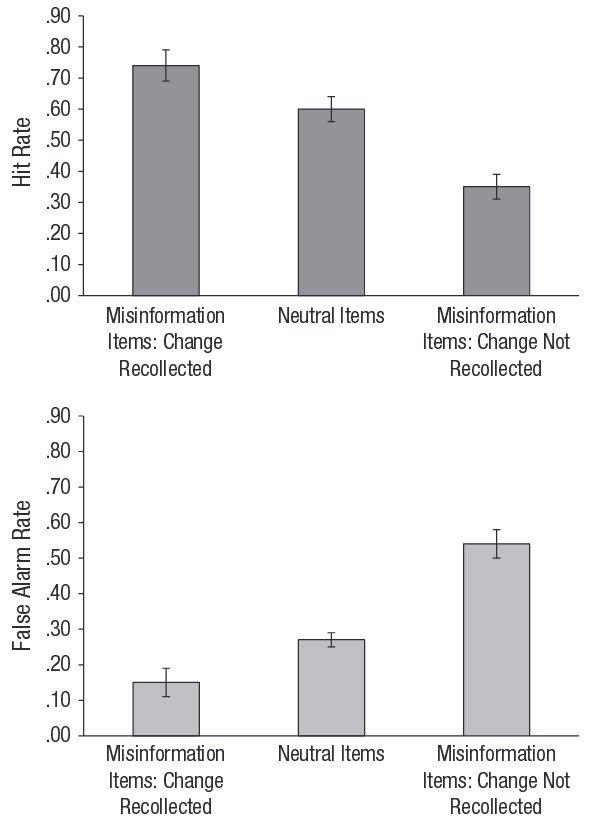
source
Think of the detection as an alarm going off. This is a salient presence in your environment, something is popping out and standing our for you to notice, and it captures your attention.
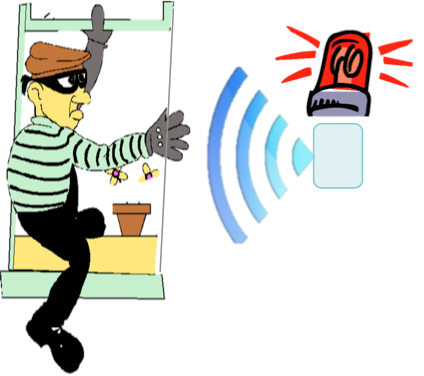
source
If you first have correct detail but don’t pay much attention to it, misinformation can influence you to accept it as the correct detail that is recently available information to bias you towards it. This impairs memory of the correct detail.
But if you detect that misinformation in an event or narrative, that error correction seems to weigh as importance an makes that event pop out more for later memory recall. You pay more attention to it, so it has better recall. If you don’t pay much attention, then the recall is less vivid. Noticing an error in something requires paying attention to it, and that increases its impact on later recall.
The less you are aware of information you have received, the more vulnerable it is to the misinformation effect.
This relates to much of my work where I talk about being manipulated, fooled, conned, tricked, bamboozled, hoodwinked, deceived, lied to, etc. If we’re not reflecting on our previously conditioned information from our state-sponsored outcome-based indoctrination centers, media, and other falsities presented to us as “truth”, then we are continuing to tacitly accept the low detail information, and are not reflecting upon it, contemplating, thinking about it.
This is the detective within us that we need to use. Detecting inconsistencies, contradictions in how we think or view the external world. Become aware of the information by looking closer at under a magnifying glass and recognize the errors in our conditioning. Then the error, inaccuracy, wrong, misinformation, unreality, etc., is on our radar, and we can target it for removal in favor of the actual representation of reality that ‘is’.
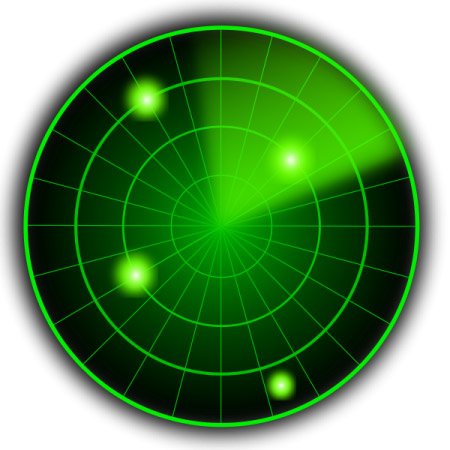
source
Reality acts as a catalyst of contradiction to false information memories, stirring and livening them from a dead state. Then we are impacted by such a corrected, and this change boosts memory instead of being bad for it.
Interference, friction, tension, contradiction, controversy, and conflict is required to correct false or inaccurate information stored as true or accurate information in memory. This friction is also required to correct falsity outside of ourselves in the external reality.
Previous false memory research on the misinformation effect, as well as the classical interference theory, indicated that false memories can be easily implanted about many types of events. As if we’re remembering things that never happened, all the time, but this new research shows differently. This can/does occur, but misinformation doesn’t automatically lead to the misinformation effect.
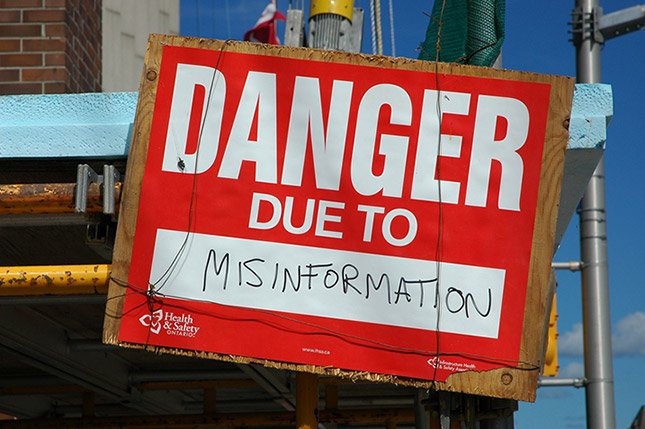
source
I’ve mentioned before the power of the negative in our lives, and the importance to notice it. The negative in life needs to be acknowledged and dealt with, not ignored. Denial doesn’t help anyone. The persistence of a negative will impede the positive (study logic truth tables, see above link).
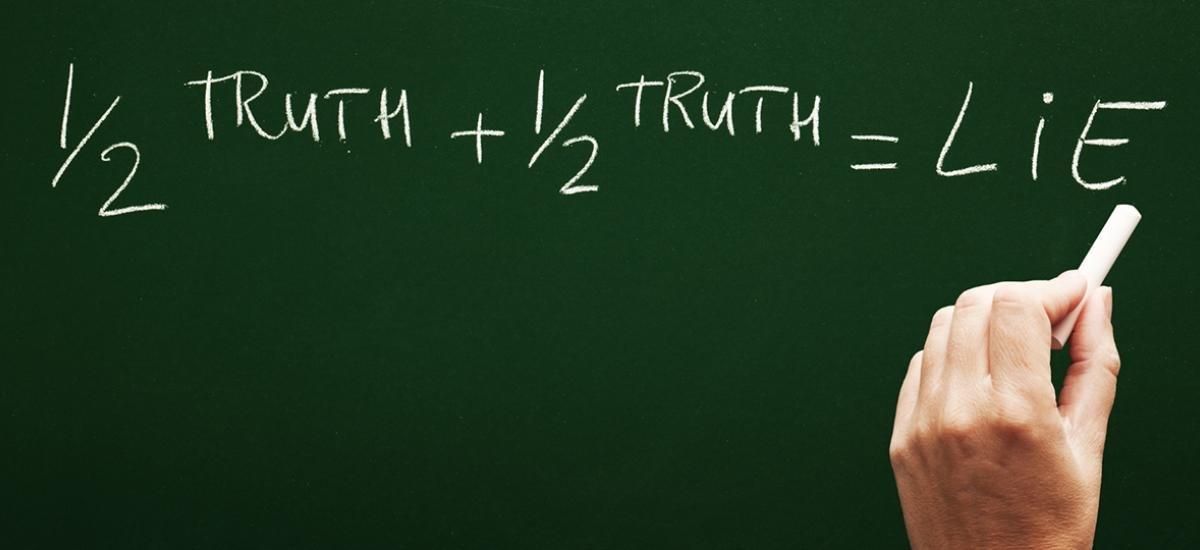
source
If we fail to recognize, recollect and correct the misinformation in our understanding of reality, we are basis out behavior on that false view and accordingly living falsely in some respect.
Steeping onto a false path leads one towards more falsity. Accepted 1+1=3, and building further mathematical models from that false step, will produce further false models of reality.
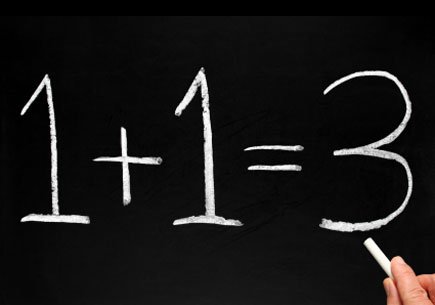
source
And rightly so. If we don’t use the power of consciousness to recognize and admit to errors, and then imagine a better way of doing things, we won’t go anywhere. We’ll stay where we are or be led by the herd or “leaders” towards a path and way of life that we ignorantly fall in line with.
Being on the right path and way in life requires recurring thinking, analysis, contemplation, self-reflection, introspection, diagnosis, and evaluation of the information we receive and the the information we already have.
We have to actively choose to pursue being informed, to seek to know and understand the demonstrable truth of reality and existence. Or else the default is to tacitly accept being mislead through being misinformed.
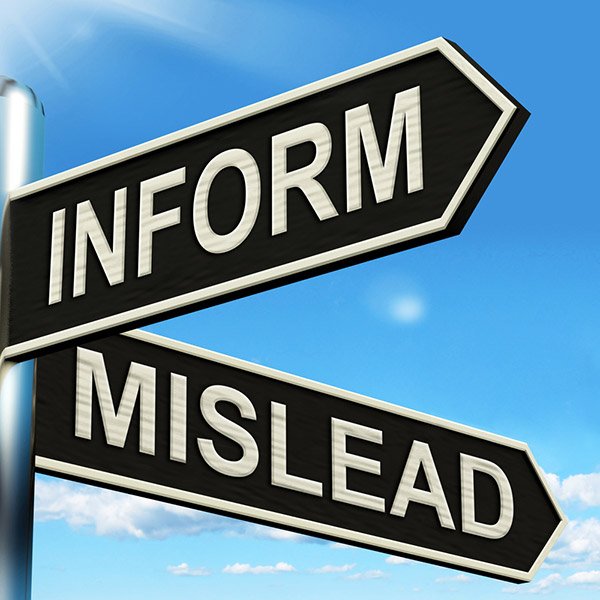
source
References: